The Best And Worst Technology Company Stocks In The Third Quarter Of 2017
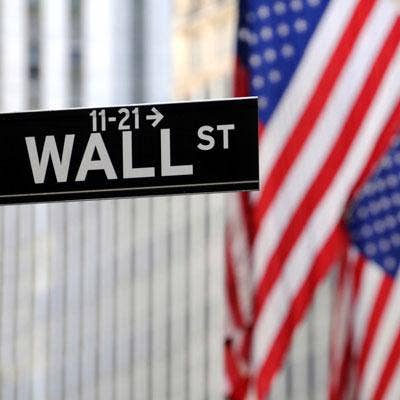
Tech Stocks: Stock Price Winners Outnumber Losers In The Third Quarter Of 2017
Stock markets have been on an upward swing in 2017 with few lengthy periods of declines. For the third quarter the Dow Jones Index was up 4.94 percent while the Nasdaq was up 5.79 percent.
Technology stocks have been part of those gains, although the ratio of stock price winners to losers was narrower in the third quarter than in the first half of the year. In the quarter 26 of the publicly traded IT companies on our watch list recorded stock gains while 16 suffered price declines.
Here's a look at who was up and who was down in the third quarter of 2017, starting with companies with the biggest gains in share price, based on stock closing prices on June 30, 2017, and Sept. 29, 2017.
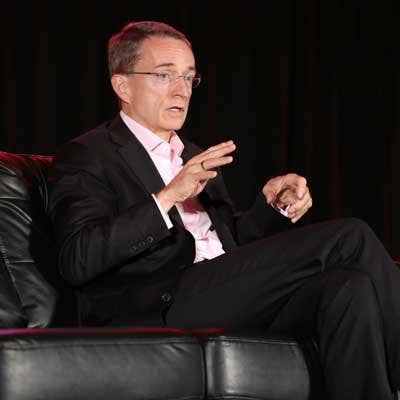
VMware
CEO: Pat Gelsinger
June 30, 2017: $87.43
Sept. 29, 2017: 109.19
Change: +24.89%
VMware's stock suffered a significant decline in 2015 when the Dell-EMC acquisition deal was announced (EMC owned a majority stake in VMware). But the stock bounced back last year and has continued to rise in 2017. In the third quarter the company's stock recorded the biggest price gain among all 42 stocks on our watch list.
On Aug. 24 VMware announced the initial availability of its VMware Cloud software-defined data center on Amazon Web Services, allowing customers to run applications across vSphere-based public, private and hybrid cloud environments.
For its fiscal 2018 second quarter (ended Aug. 4, 2017) VMware reported revenue growth of more than 12 percent to $1.90 billion from $1.69 billion one year earlier. Net income for the quarter was $344 million, up 26 percent from $265 million one year before.
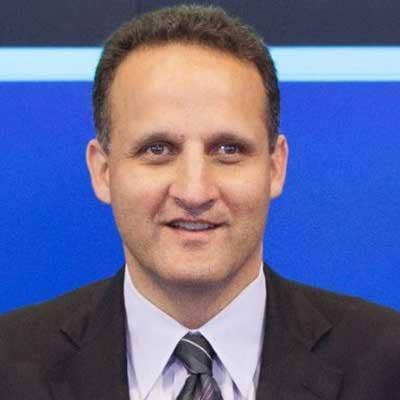
Tableau Software
CEO: Adam Selipsky
June 30, 2017: $61.27
Sept. 29, 2017: $74.89
Change: +22.23%
In 2016 Tableau Software's stock recorded the biggest decline among the companies on our watch list, largely due to a big drop in its stock price early in the year on what analysts saw as weak guidance for future results. But this year the business analytics software company's stock has been recording some of the biggest gains among the companies we follow.
Tableau acquired ClearGraph, a startup developer of natural language technology, on Aug. 9 and said it would integrate ClearGraph's technology into Tableau's system. That will make it easier for people to interact with information by using conversational-style search to ask questions about data.
In August Tableau reported that in its second quarter ended June 30 revenue grew 7 percent year over year to $212.9 million from $198.5 million in the second quarter of 2016. The company also narrowed its loss to $42.5 million from $47.5 million one year before.

Splunk
CEO: Doug Merritt
June 30, 2017: $56.89
Sept. 29, 2017: $66.43
Change: +16.77%
Splunk is a fast-growing developer of real-time operational intelligence and machine-learning software used for security, IT performance management, business analytics and other applications.
At Splunk's .conf2017 annual customer and partner conference in September, Splunk debuted new releases of its software including Splunk Enterprise 7.0, Splunk IT Service Intelligence 3.0 and Splunk User Behavior Analytics 4.0 – all with new machine-learning capabilities.
For its fiscal 2018 second quarter (ended July 31) Splunk reported revenue of $280.0 million, up 32 percent from $212.8 million in last year's second quarter. The company's loss was $83.5 million, less than the $86.6 million loss reported one year before.

Symantec
CEO: Greg Clark
June 30, 2017: $28.25
Sept. 29, 2017: $32.81
Change: +16.14%
Symantec has been through some turbulent times, including selling off its Veritas storage technology business in 2015 and buying security software developer Blue Coat Systems for $4.65 billion last August – the latter resulting in changes in Symantec's top executive ranks.
In July Symantec unveiled deals to acquire Fireglass, a developer of agentless isolation technology, and Skycure, a developer of threat defense software for mobile devices. President and COO Michael Fey told CRN that other acquisitions are likely.
In August Symantec reported that in its fiscal 2018 first quarter (ended June 30) revenue grew 33 percent to $1.18 billion from $884 million one year earlier. But the company reported a $133 million loss compared with net income of $135 million one year before.
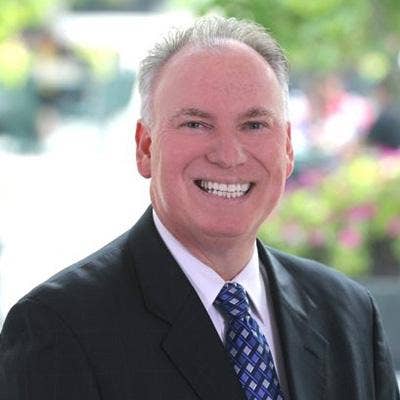
Xerox
CEO: Jeff Jacobson
June 30, 2017: $28.73
Sept. 29, 2017: $33.29
Change: +15.87%
Xerox split into two companies effective Jan. 2, 2017, one named Xerox focused on printers and other document technology hardware with expected annual sales of $11 billion, and the other named Conduent providing business process outsourcing services with expected annual sales of $7 billion.
Xerox has implemented a pair of stock splits this year, including a 1518-for-1000 stock split on Jan. 3 and a one-for-four reverse stock split on June 14. The June 30, 2017 and Sept. 29, 2017 stock prices have been adjusted accordingly.
In August Xerox reported that in its second quarter ended June 30 revenue declined 8.1 percent to $2.57 billion from $2.79 billion in the same quarter one year earlier. Net income for the quarter was $166 million, up 5 percent from $158 million one year before.

Red Hat
CEO: James Whitehurst
June 30, 2017: $95.75
Sept. 29, 2017: $110.86
Change: +15.78%
On July 31 open-source software developer Red Hat acquired the assets and technology of Permabit Technology, a developer of software for data deduplication, compression and thin provisioning. Red Hat is adding the technology to its enterprise Linux platform.
In September Red Hat reported that in its fiscal 2018 second quarter (ended Aug. 31) revenue reached $723.4 million, up 20.6 percent from $599.8 million in the same quarter one year earlier. Net income for the quarter was $96.9 million, up nearly 65 percent from $58.8 million one year before.

HP Inc.
CEO: Dion Weisler
June 30, 2017: $17.48
Sept. 29, 2017: $19.96
Change: +14.19%
HP Inc., a marketer of personal systems and printers, was created in November 2015 through the split of Hewlett-Packard Co. into HP Inc. and Hewlett Packard Enterprise.
On July 26 HP announced that Meg Whitman, CEO of the original Hewlett-Packard Co, and CEO of Hewlett Packard Enterprise, had stepped down as HP Inc.'s Independent Board Chairman. The board elected Chip Bergh to the post.
In August the company reported that revenue in its fiscal 2017 third quarter (ended July 31) was $13.06 billion, up 10 percent from $12.39 billion in the same quarter one year earlier. Net earnings for the quarter were $696 million, up nearly 25 percent from $559 million one year before.
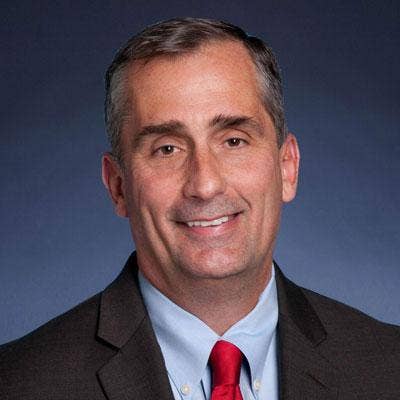
Intel
CEO: Brian Krzanich
June 30, 2017: $33.74
Sept. 29, 2017: $38.08
Change: +12.86%
On Aug. 8 Intel completed its $15.3 billion acquisition of Mobileye, a manufacturer of chip-based camera systems for connected cars, for $15.3 billion. The move, part of Intel's efforts to expand beyond chips for desktop and laptop PCs into new areas such as the Internet of Things and artificial intelligence, makes Intel a major player in the market for components for automated vehicle systems.
On July 27 Intel reported results for its second 2017 quarter ended July 1. Revenue in the quarter grew 14 percent to $14.76 billion from $13.53 billion in the same quarter one year earlier. Net income more than doubled to $2.81 billion in the quarter from $1.33 billion one year before.
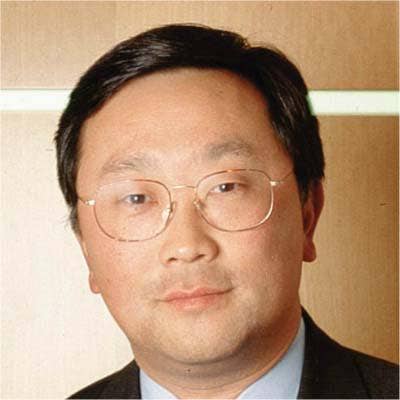
BlackBerry
CEO: John Chen
June 30, 2017: $9.99
Sept. 29, 2017: $11.18
Change: +11.91%
On Sept. 28 BlackBerry reported that revenue in its fiscal 2018 second quarter (ended Aug. 31) was $238 million, down 29 percent from $334 million in the same quarter one year earlier. But the company reported net income of $19 million compared with a $372 million loss one year before.

Nutanix
CEO: Dheeraj Pandey
June 30, 2017: $20.15
Sept. 29, 2017: $22.39
Change: +11.12%
Cloud computing system vendor Nutanix's stock plummeted more than 37 percent in March – with the share price falling from $31.12 at the close of trading March 2 to $23.00 at the close of trading March 3. That came after the company issued guidance for the third quarter that disappointed investors and analysts. The stock continued to decline until bottoming out at $14.46 per share on May 1.
But the share price rebounded in May and June and continued to strengthen in the third calendar quarter.
On Aug. 31 Nutanix reported that revenue in its fiscal 2017 fourth quarter (ended July 31) was $226.1 million, up 62 percent from $139.8 million in the fourth quarter of fiscal 2016. But the company's loss nearly doubled in the quarter to $90.7 million from $49.9 million one year earlier.
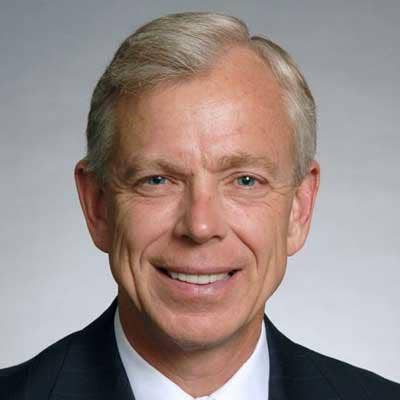
Verizon Communications
CEO: Lowell McAdam
June 30, 2017: $44.66
Sept. 29, 2017: $49.49
Change: +10.82%
On July 27 Verizon Communications reported revenue of $30.55 billion for its second quarter ended June 30, essentially unchanged from the $30.53 billion in the same quarter one year earlier. Net income for the quarter surged to $4.48 billion, however, compared with net income of $831 million one year before.
On Sept. 18 Verizon named Rima Qureshi, former president and CEO of Ericsson North America, to be Verizon's executive vice president and chief strategy officer. She is taking over responsibility for development and implementation of the communications company's overall corporate strategy, including business development and strategic investments. She is succeeding Roy Chestnutt, who previously announced plans to pursue interests outside Verizon and is leaving by the end of the year.

Netgear
CEO: Patrick Lo
June 30, 2017: $43.10
Sept. 29, 2017: $47.60
Change: +10.44%
For its second quarter ended July 2 Netgear reported revenue of $330.7 million, up 6.1 percent from $311.7 million in the second quarter of 2016. Net income in the recently completed quarter was $14.6 million, down 9 percent from $16.0 million one year ago.

FireEye
CEO: Kevin Mandia
June 30, 2017: $15.21
Sept. 29, 2017: $16.77
Change: +10.26%
FireEye's stock had been on a long decline – dropping nearly 43 percent in 2016 – before starting a rebound late in this year's first quarter. FireEye has also been the subject of ongoing acquisition rumors.
In July the company disclosed that chief marketing officer Kara Wilson was leaving the company for a position with Rubrik, developer of a data protection, archiving and management platform. In September the company hired former Brocade marketing executive Vasu Jakkal to fill the CMO post.
Also in July Ken Gonzalez, senior vice president of corporate development and global alliances, left the company to take a job with Trident Capital Cybersecurity.
On Aug. 1 FireEye reported that revenue in its second quarter (ended June 30) reached $185.5 million, up 6 percent from $175.0 million in the same quarter one year before. The company's loss also narrowed to $70.7 million compared with the $139.3 million loss one year earlier.
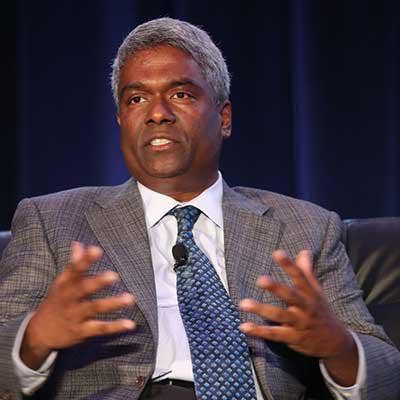
NetApp
CEO: George Kurian
June 30, 2017: $40.05
Sept. 29, 2017: $43.76
Change: +9.26%
On Aug. 16 NetApp announced the acquisition of Greenqloud, a Reykjavik, Iceland-based developer of technology for enterprise-scale cloud management. The acquisition had actually been completed several weeks earlier.
Also on Aug. 16 NetApp reported the results of its fiscal 2018 first quarter (ended July 28) in which revenue reached $1.33 billion, up 2.4 percent from $1.29 billion in the same quarter one year earlier. But net income more than doubled to $136 million in the quarter from $64 million one year before.
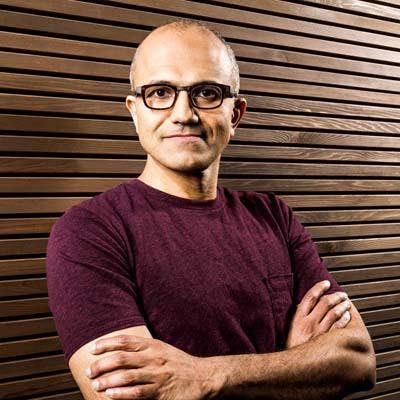
Microsoft
CEO: Satya Nadella
June 30, 2017: $68.93
Sept. 29, 2017: $74.49
Change: +8.07%
On June 8 Microsoft announced a deal to acquire cybersecurity startup Hexadite. On June 29 the company confirmed a long-rumored acquisition of Cloudyn, a developer of software used by businesses and managed service providers to manage their spending on cloud services.
In July Microsoft reported the results for all of fiscal 2017 and the fourth fiscal quarter ended June 30.
For the fourth quarter revenue was $23.32 billion, up more than 13 percent from $20.61 billion in the fourth quarter of fiscal 2016. Net income for the quarter was $6.51 billion, more than double the $3.12 billion one year before.
For all of fiscal 2017 Microsoft reported revenue of $89.95 billion, up 5.4 percent from $85.32 billion in fiscal 2016. Net income for the year was $21.20 billion, up more than 26 percent from $16.80 billion the previous fiscal year.

Salesforce.com
CEO: Marc Benioff
June 30, 2017: $86.60
Sept. 29, 2017: $93.42
Change: +7.88%
For its fiscal 2018 second quarter (ended July 31) Salesforce reported that revenue reached $2.56 billion, up 26 percent from $2.04 billion in the same quarter one year earlier. Net income was $17.7 million, however, down markedly from $229.6 million one year before.
CEO Marc Benioff has long vowed to be the first cloud software company to hit the $10 billion revenue threshold and the company noted that second-quarter revenue exceeded the $10 billion annual run rate for the first time. The company is forecasting that revenue for all of fiscal 2018 will be between $10.35 billion and $10.40 billion – up 23 percent to 24 percent over fiscal 2017.

Commvault Systems
CEO: N. Robert Hammer
June 30, 2017: $56.45
Sept. 29, 2017: $60.80
Change: +7.71%
Commvault Systems is a developer of enterprise data protection and information management systems for data backup, archiving and recovery.
For its fiscal 2018 first quarter (ended June 30) Commvault reported in July that revenue reached $166.0 million, up more than 9 percent from $151.8 million in the same quarter one year earlier. The company reported a $284,000 loss for the quarter, an improvement over the $2.6 million loss one year before.
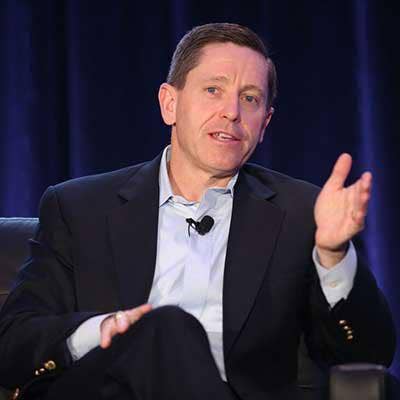
Palo Alto Networks
CEO: Mark McLaughlin
June 30, 2017: $133.81
Sept. 29, 2017: $144.10
Change: +7.69%
On Aug. 31, six months after security technology developer Palo Alto Networks launched a comprehensive sales reorganization, the company said that it was seeing "solid gains" from the changes and reported a 27 percent increase in fourth-quarter sales.
For the fiscal 2017 fourth quarter ended July 31 Palo Alto Networks reported revenue of $509.1 million, up 27 percent from $400.8 million in the same quarter one year earlier. The company reported a $38.2 million loss for the quarter, however, compared with a $31.4 million loss one year before.
For all of fiscal 2017 Palo Alto Networks reported revenue of $1.76 billion, up nearly 28 percent from $1.38 billion in fiscal 2016. The company reported a loss of $216.6 million for fiscal 2017 compared with a $192.7 million loss in fiscal 2016.
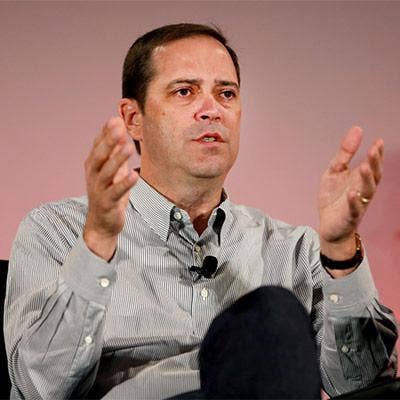
Cisco Systems
CEO: Chuck Robbins
June 30, 2017: $31.30
Sept. 29, 2017: $33.63
Change: +7.44%
On Sept. 25 Cisco closed its acquisition of hyper-converged software developer Springpath in a move that's expected to boost Cisco's data center strategy, including its HyperFlex and Unified Computing System product lines. The acquisition deal was announced Aug. 21.
On Aug. 1 Cisco completed its acquisition of Viptela, a provider of software-defined wide area network technology in a bid to expand Cisco's SD-WAN portfolio.
And on July 31 Cisco struck a deal to buy forensics security software startup Observable Networks in an effort to extend the reach of its Stealthwatch network visibility platform into the cloud.
For its fiscal 2017 fourth quarter (ended July 29) Cisco reported revenue of $12.13 billion, down 4 percent from $12.64 billion in the fourth quarter of fiscal 2016. Net income for the quarter was $2.42 billion, down nearly 14 percent from $2.81 billion one year before.
For all of fiscal 2017 Cisco reported revenue of $48.01 billion, down 2.5 percent from $49.25 billion in fiscal 2016. Net income in fiscal 2017 was $9.61 billion, down 10.5 percent from $10.74 billion in fiscal 2016.

Apple
CEO: Tim Cook
June 30, 2017: $144.02
Sept. 29, 2017: $154.12
Change: +7.01%
In what was probably the most significant new product event for Apple in several years, the company unveiled on Sept. 12 the iPhone X, a special edition of the company's flagship product, along with the new iPhone 8 and iPhone 8 Plus editions.
On Aug. 1 Apple said that revenue in its fiscal 2017 third quarter (ended July 1) was $45.41 billion, up more than 7 percent from $42.36 billion in the third quarter of fiscal 2016. Net income for the quarter was $8.72 billion, up nearly 12 percent from $7.80 billion one year before.

Alphabet
CEO: Larry Page
June 30, 2017: $908.73
Sept. 29, 2017: $959.11
Change: +5.54%
On Sept. 26 Google said it had acquired identity management startup Bitium, bringing in security technology that can be used to secure applications running in Google's cloud system.
In July Alphabet, Google's parent company, reported that revenue in the company's second quarter (ended June 30) was $26.01 billion, up nearly 21 percent from $21.50 billion in last year's second quarter. But net income declined 38 percent to $3.52 billion in this year's second quarter from $4.88 billion last year.
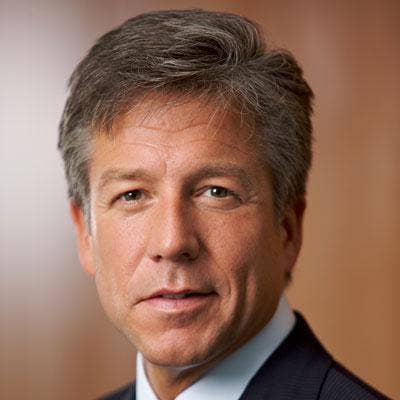
SAP
CEO: Bill McDermott
June 30, 2017: $104.67
Sept. 29, 2017: $109.65
Change: +4.76%
On Sept. 24 SAP said it had reached an agreement to acquire Gigya, a developer of customer identity and access management software that companies use to manage customers' profiles, preferences, opt-in and consent settings. SAP will use Gigya's technology and expertise to enhance its SAP Hybris Profile software.
For the second quarter ended June 30, SAP reported revenue of 5.78 billion euro (U.S. $6.64 billion), up more than 10 percent from 5.24 euro (U.S. $6.01) in the second quarter of 2016.
But SAP's operating profit was down 27 percent to 926 million euro (U.S. $1.06 billion) from 1.27 billion Euro (U.S. $1.46 billion) in last year's second quarter. The decline was due to costs associated with a restructuring of SAP's services organization and higher share compensation expenses,
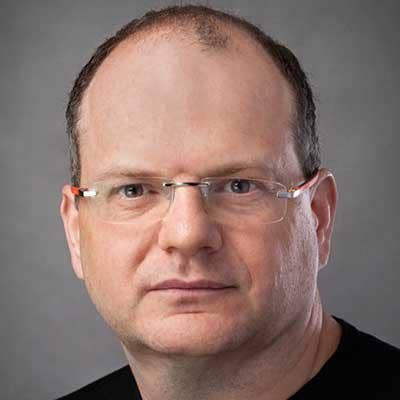
Check Point Software Technologies
CEO: Gil Shwed
June 30, 2017: $109.08
Sept. 29, 2017: $114.02
Change: +4.53%
On Aug. 11 Check Point Software Technologies announced an extension to its ongoing share repurchase program, authorizing the repurchase of up to $250 million of ordinary shares each quarter up to an aggregate of $1 billion. Between April 1, 2016, and June 30, 2017, the company purchased about 14 million shares for approximately $1.2 billion. As of June 30, 2017, the company had about 162.8 million shares outstanding.
In July Check Point said that revenue in its second quarter (ended June 30) was $458.6 million, up 8.5 percent from $422.7 million in the second quarter of 2016. Net income for the quarter was $188.4 million, up 13.6 percent from $165.8 million one year earlier.

AT&T
CEO: Randall Stephenson
June 30, 2017: $37.73
Sept. 29, 2017: $39.17
Change: +3.82%
AT&T's proposed $85.4 billion acquisition of global entertainment and media powerhouse Time Warner, announced in October 2016, remained under regulatory review during the third quarter. AT&T hopes to close the deal this year.
On July 7 AT&T completed its acquisition of Brocade Communications' Vyatta Software Platform, signaling a significant shift in how the company will provide networking solutions in the future.
For its second quarter ended June 30 AT&T reported operating revenue of $39.84 billion, down less than 2 percent from $40.52 billion in the same quarter one year before. But net income grew more than 14 percent in the quarter to $4.01 billion from $3.52 billion one year earlier.

Advanced Micro Devices
CEO: Lisa Su
June 30, 2017: $12.48
Sept. 29, 2017: $12.75
Change: +2.16%
Chipmaker AMD's technological prowess has been on display lately, putting more price-performance competitive pressure on longtime rival Intel. In July the company launched its Threadripper Ryzen line of processors that the company said was priced almost $1,000 less than Intel's competing Core X chip.
That followed AMD's June 21 release of its new Epyc line of server processors designed to compete with Intel in the all-important data center system arena.
For its second quarter (ended July 1) AMD reported revenue of $1.22 billion, up 19 percent from $1.03 billion in last year's second quarter. But the company reported a $16 million loss for the quarter, in contrast to net income of $69 million one year before.
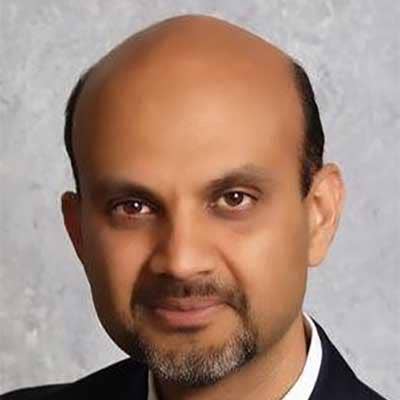
Carbonite
CEO: Mohamad Ali
June 30, 2017: $21.80
Sept. 29, 2017: $22.00
Change: +0.92%
Carbonite, a developer of cloud-based data backup and recovery services, reported in August that revenue in the company's second quarter (ended June 30) was $59.0 million, up 10 percent from $53.4 million in the same quarter in 2016. But the company's loss increased considerably to $6.4 million from $1.2 million one year before.

Juniper Networks
CEO: Rami Rahim
June 30, 2017: $27.88
Sept. 29, 2017: $27.83
Change: -0.18%
Juniper Networks is the first company on our technology watch list to record a decline in its stock price in the third quarter of 2017.
On Aug. 31 Juniper Networks announced a deal to acquire security analytics software developer Cyphort in a move that will boost the vendor's security technology portfolio.
And in July Juniper Networks hired Bikash Koley, one of Google's top engineers, as its new chief technology officer.
For its second quarter ended June 30 Juniper Networks reported revenue of $1.31 billion, up more than 7 percent from $1.22 billion in the second quarter of 2016. Net income for the quarter was $179.8 million, up more than 28 percent from $140.0 million one year before.
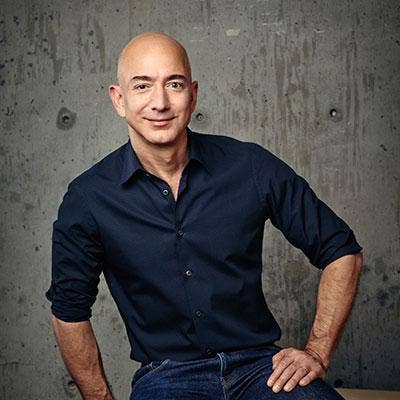
Amazon
CEO: Jeff Bezos
June 30, 2017: $968.00
Sept. 29, 2017: $961.35
Change: -0.69%
Amazon completed its blockbuster $13.7 billion acquisition of grocery retailer Whole Foods on Aug. 28.
On the IT side, Amazon Web Services announced on Sept. 18 that it would become the first major public cloud operator to bill customers by the second for virtual servers and storage, a move that's expected to accelerate the ongoing price wars among leading cloud service providers.
In July Amazon said AWS' annual revenue run rate was about $16 billion, although its rate of growth was slowing.
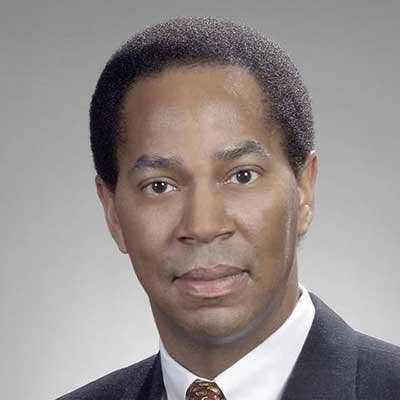
Eaton
CEO: Craig Arnold
June 30, 2017: $77.83
Sept. 29, 2017: $76.79
Change: -1.34%
On Aug. 1 power management technology vendor Eaton reported that sales in its second quarter ended June 30 was $5.13 billion, up 1 percent from $5.08 billion in the second quarter of 2016. Net income for the quarter was $515 million, up nearly 5 percent from $491 million one year before.

Western Digital
CEO: Steve Milligan
June 30, 2017: $88.10
Sept. 29, 2017: $86.40
Change: -1.93%
On July 27 storage technology developer Western Digital reported that revenue in its fiscal 2017 fourth quarter (ended June 30) reached $4.84 billion, up more than 38 percent from $3.50 billion in the fourth quarter of fiscal 2016. Net income was $280 million compared with the $366 million loss reported one year earlier.
For all of fiscal 2017 Western Digital reported revenue of $19.09 billion, up 47 percent from $12.99 billion in fiscal 2016. (Western Digital's revenue got a significant boost from its May 2016 acquisition of flash memory chip manufacturer SanDisk for $19 billion.) Net income for the year was $397 million, up 64 percent from $242 million one year earlier.
In recent months Western Digital and its SanDisk subsidiary have become embroiled in a legal dispute with Toshiba over the latter's plans to sell its memory chip business for $18 billion. Western Digital was a joint-venture partner with Toshiba in memory chips and has opposed the sale.

CA Technologies
CEO: Michael Gregoire
June 30, 2017: $34.47
Sept. 29, 2017: $33.38
Change: -3.16%
CA Technologies has been reinventing itself with a focus on systems and cloud management, security and DevOps software.
On Aug. 2 CA reported that in its fiscal 2018 first quarter (ended June 30) revenue increased 3 percent to $1.03 billion from $999 million in the first quarter of fiscal 2017. But net income in the quarter declined 10 percent to $178 million from $198 million one year before.

Citrix Systems
CEO: David Henshall
June 30, 2017: $79.58
Sept. 29, 2017: 76.82
Change: -3.47%
On July 10 Citrix announced that Kirill Tatarinov was out as president and CEO, a job he had held since January 2016. No reason for his departure was given other than it was by mutual agreement between Tatarinov and the company's board. CFO and chief operating officer David Henshall was named the company's new president and CEO.
The company's statement announced the leadership transition as a bid to "accelerate cloud transformation, enhance profitability and return capital to shareholders."
On Sept. 21 Citrix appointed former SAP executive Mark Ferrer to be the company's chief revenue officer and executive vice president.
On Aug. 2 Citrix reported that in its second quarter (ended June 30) revenue grew nearly 3 percent to $693.2 million from $674.0 million in the same quarter one year earlier. But net income in the quarter declined nearly 10 percent to $108.8 million from $121.0 million one year before.
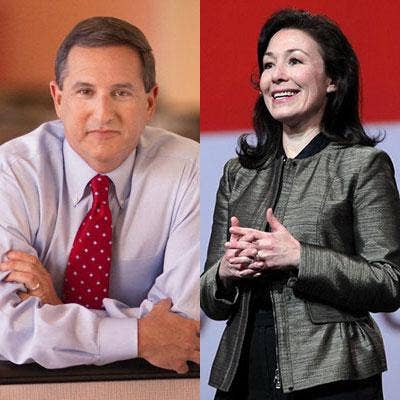
Oracle
Co-CEOs: Mark Hurd, Safra Catz
June 30, 2017: $50.14
Sept. 29, 2017: $48.35
Change: -3.57%
In August Oracle launched Oracle Cloud Applications Release 13, the next generation of the software company's ERP, human capital management, customer experience and supply chain management cloud applications.
On Sept. 14 Oracle reported that revenue in its fiscal 2018 first quarter (ended Aug. 31) increased 7 percent to $9.19 billion from $8.60 billion in the first quarter of fiscal 2017. Net income for the quarter was $2.21 billion, up 21 percent from $1.83 billion one year before.

Fortinet
CEO: Ken Xie
June 30, 2017: $37.44
Sept. 29, 2017: $35.84
Change: -4.27%
Security technology vendor Fortinet had a turbulent 2016, undertaking an extensive reorganization of its U.S. enterprise sales operations. But ultimately the company managed solid gains in 2016 with 26 percent revenue growth to $1.28 billion.
That growth has continued into 2017. For its second quarter (ended June 30) Fortinet reported revenue of $363.5 million, up nearly 17 percent from $311.4 million in the second quarter of 2016. The company reported $23.0 million in net income for the quarter, in contrast to the $1.39 million loss in the same quarter one year before.

F5 Networks
CEO: Francois Locoh-Donou
June 30, 2017: $127.06
Sept. 29, 2017: $120.56
Change: -5.12%
In January F5 Networks named Francois Locoh-Donou, senior vice president and chief operating officer at networking vendor Ciena, to be the application delivery and security company's new president and CEO effective April 3. Locoh-Donou replaced longtime CEO John McAdams, who retired.
In July F5 reported that revenue in its fiscal 2017 third quarter (ended June 30) increased 4.3 percent to $517.8 million from $496.5 million in the fiscal 2016 third quarter. Net income in the quarter grew more than 6 percent to $97.7 million from $91.8 million in the same quarter one year ago.

Brocade Communications Systems
CEO: Lloyd Carney
June 30, 2017: $12.61
Sept. 29, 2017: $11.95
Change: -5.23%
Networking technology supplier Brocade Communications Systems remains in limbo after striking a deal in late 2016 to be acquired by semiconductor maker Broadcom for $5.9 billion ($12.75 per share). The two companies now expect to complete the acquisition by Nov. 30, although the 5-plus percent decline in the company's stock price in the third quarter, bringing it to 66 cents per share below the acquisition price, could indicate some investors question whether the deal will happen.
Once the acquisition closes, Broadcom will retain Brocade's Fibre Channel SAN switching business and divest other parts of Brocade's business. That includes selling Brocade's IP networking operations – including the Ruckus Wireless business Brocade bought in 2016 for $1.2 billion – to Arris International.
The acquisition deal originally called for Broadcom to sell Brocade's data center networking business to Extreme Networks, but this week Extreme said it would acquire those assets directly from Brocade and not wait for the Broadcom deal to close.
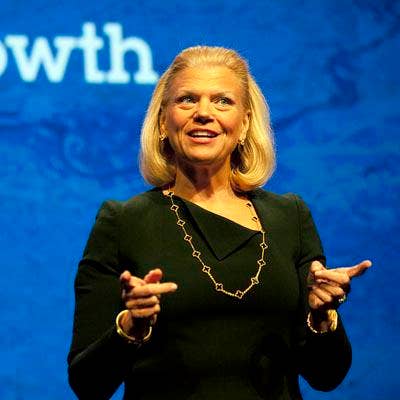
IBM
CEO: Virginia Rometty
June 30, 2017: $153.83
Sept. 29, 2017: $145.08
Change: -5.69%
IBM has been working through a business transformation to focus on high-margin cloud, analytics, mobile, social and security businesses that now account for nearly $33 billion in annual sales – 40 percent of the company's overall revenue. But that transformation hasn't been easy and the company has now recorded 21 straight quarters of declining revenue.
That includes the second quarter ended June 30 when IBM reported revenue of $19.29 billion, down 4.7 percent from $20.24 billion in the second quarter of 2016. The company also reported a nearly 7 percent decline in net income for the quarter to $2.33 billion from $2.50 billion one year earlier.
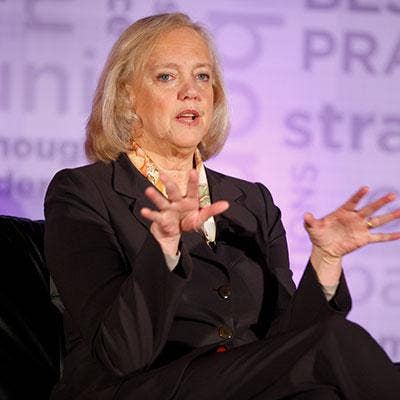
Hewlett Packard Enterprise
CEO: Meg Whitman
June 30, 2017: $16.59
Sept. 29, 2017: $14.71
Change: -11.33%
On Sept. 1 Hewlett Packard Enterprise completed a year-long process to spin off its enterprise software operations, including its Autonomy, Mercury Interactive and Vertica Systems products, and merge them with Micro Focus under an $8.8 billion deal.
On Sept. 2 HPE reported that in its fiscal 2017 third quarter (ended July 31) revenue was up 3 percent year over year to $8.21 billion from $8.01 billion in the third quarter of fiscal 2016. But net income for the quarter was $165 million, a fraction of the $2.27 billion in net income reported one year earlier.
On Sept. 5 HPE acquired Cloud Technology Partners, a 200-person Amazon Web Services consultancy, to bolster its hybrid IT prowess.
In late September reports indicated that HPE planned to cut 5,000 jobs, or about 10 percent of its workforce, as part of its HPE Next restructuring.

Lenovo Group
CEO: Yang Yuanqing
June 30, 2017: $12.71
Sept. 29, 2017: $10.99
Change: -13.53%
Lenovo has struggled to gain traction in the market for servers and other data center systems even as it loses market share to rivals HP Inc. and Dell in its core PC and laptop computer business.
Lenovo also continues to experience a rapid turnover in its top management. Emilio Ghilardi stepped down as the company's North America president, effective July 31, with the company not specifying why. He was the fifth executive to hold that position in five years.
For its fiscal 2018 first quarter (ended June 30) Lenovo reported revenue of $10.01 billion, essentially flat with the $10.06 billion recorded in the first quarter of fiscal 2017. The company also surprised Wall Street by reporting a $72 million loss compared with net income of $173 million in the same quarter one year earlier.

Seagate Technology
CEO: Stephen Luczo
June 30, 2017: $38.75
Sept. 29, 2017: $33.17
Change: -14.40%
Seagate Technology announced Sept. 28 that it is participating in a consortium led by Bain Capital Private Equity that is acquiring Toshiba Memory Corp., a unit of Toshiba Corp. Seagate also said it has committed to provide up to $1.25 billion in financing to support the acquisition.
For its fiscal 2017 fourth quarter (ended June 30) Seagate reported $2.41 billion in revenue, down more than 9 percent from $2.65 billion in revenue in the fourth quarter of fiscal 2016. But net income for the quarter was $114 million, up nearly 63 percent from $70 million one year earlier.
For all of fiscal 2017 Seagate reported revenue of $10.77 billion, down 3.5 percent from $11.16 billion in fiscal 2016. But net income for the year soared to $772 million compared with the $248 million net income recorded in fiscal 2016.

CenturyLink
CEO: Glen Post
June 30, 2017: $23.88
Sept. 29, 2017: $18.90
Change: -20.85%
CenturyLink is in the process of acquiring Level 3 Communications, a global network services company, for about $34 billion in cash and stock in a deal announced Oct. 31, 2016. On Sept. 1, CenturyLink announced a revised time frame for completing the acquisition, anticipating it to close in mid to late October.
On Oct. 2, after the period covered by this analysis, the U.S. Department of Justice gave its approval for the Level 3 Communications acquisition subject to conditions outlined in a consent decree.
On June 1 CenturyLink announced a CEO succession plan under which Level 3 president and CEO Jeff Storey will join CenturyLink as president and chief operating officer once the acquisition is completed. Glen Post will remain CEO until Jan. 1, 2019, when Storey will take over as CEO and Post becomes executive chairman.
On Aug. 2 CenturyLink reported that operating revenue in its second quarter ended June 30 was $4.09 billion, down 7 percent from $4.40 billion in the same quarter one year earlier. Net income for the quarter was $17 million, down markedly from $196 million one year before.

Quantum
CEO: Jon Gacek
June 30, 2017: $7.81
Sept. 29, 2017: $6.12
Change: -21.64%
Quantum's stock price had languished below $1 per share since September 2015 and the company faced the prospect of being delisted from the New York Stock Exchange. On April 3 Quantum announced a 1-for-8 reverse stock split effective at the close of trading on April 18 with common stock trading on the split-adjusted basis on April 19.
The number of outstanding shares dropped from approximately 273 million shares to 34 million shares. While Quantum's stock closed at $0.83 per share on Dec. 30, 2016, that price has been adjusted this year to reflect the reverse stock split for the purpose of this analysis.
On Aug. 9 Quantum reported that revenue in its fiscal 2018 first quarter (ended June 30) was $116.9 million, essentially flat with the $116.3 million reported in the first quarter of fiscal 2017. The company's loss for the quarter was $3.7 million, a bit larger than the $3.5 million loss in the same quarter one year before.